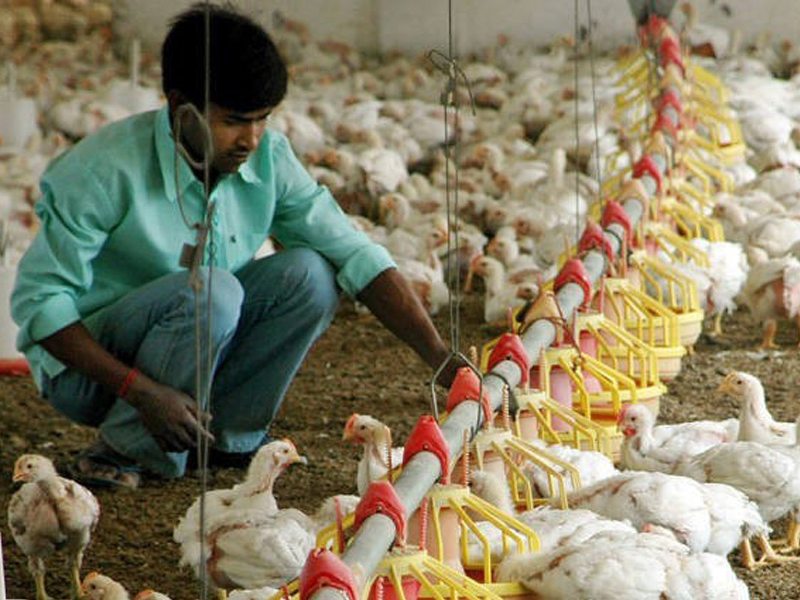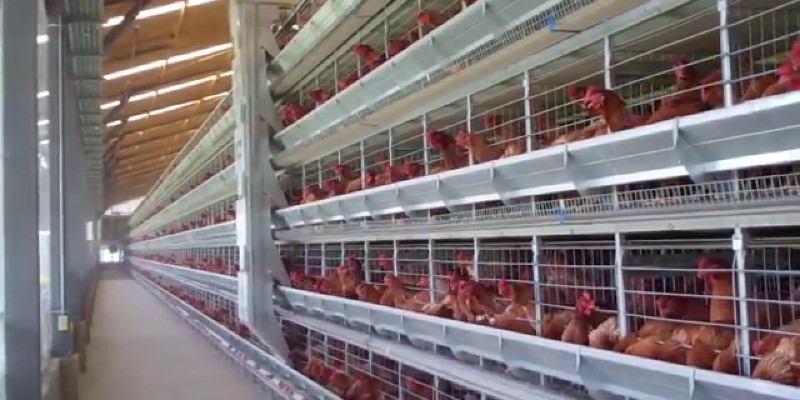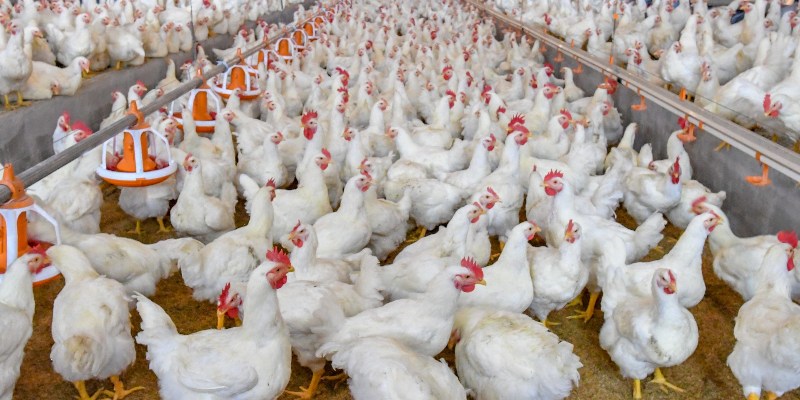
How Much Does It Cost to Start a Poultry Farm in Ethiopia?
Ethiopia is a major poultry farming country in the world. It has rich agricultural resources, a suitable climate and a growing demand for poultry products. Many entrepreneurs are considering investing in Ethiopia’s poultry farming industry. However, before diving into poultry farming, it is essential to understand the financial aspects involved, particularly the cost to start a poultry farm in Ethiopia. This article will explore the current poultry market development in Ethiopia, breakdown the costs associated with starting a poultry farm, and highlight Livi Machinery as a leading provider of quality poultry equipment.
Poultry Market Development in Ethiopia
The poultry market in Ethiopia has been experiencing remarkable growth over the past decade. The country’s population is on the rise, resulting in an increased demand for protein-rich food sources, particularly chicken meat and eggs. According to various reports, chicken consumption in urban areas has shown a steady increase, creating lucrative opportunities for poultry farmers.
The Ethiopian government recognizes the potential of the poultry sector as a means to enhance food security, generate employment, and boost economic growth. As part of its strategy, the government has implemented policies to support smallholder farmers, improve veterinary services, and develop feed production systems. Additionally, initiatives aimed at training farmers and enhancing biosecurity measures have also been introduced, providing a conducive environment for poultry farming.
However, despite these positive developments, challenges persist. Farmers often face issues such as inadequate access to quality feeds, disease outbreaks, and infrastructural limitations. Therefore, understanding the cost to start a poultry farm in Ethiopia is vital for prospective investors to ensure they are well-prepared to tackle these challenges and succeed in the industry.
Cost to Start a Poultry Farm in Ethiopia
When considering the cost to start a poultry farm in Ethiopia, several factors come into play, including the scale of the operation, the type of poultry (broilers or layers), and the region where the farm will be established. An estimated overall budget can help new farmers gauge what they need to invest. Here are the primary cost components to consider:
1. Land Acquisition
The first step in establishing a poultry farm is acquiring land. The cost varies significantly depending on location. In rural areas, land prices are generally lower, while urban outskirts may demand higher rates. Depending on the size required, purchasing land can range from $500 to $5,000 per hectare.
2. Poultry Housing
Constructing adequate housing for the birds is crucial for comfort and productivity. A well-ventilated, secure poultry house is essential. Building a poultry house for approximately 1,000 birds may cost between $2,000 and $10,000, influenced by design and material choices. Ensuring that the structure meets health and safety standards is paramount.
3. Equipment and Supplies
Investing in quality equipment is essential for efficient poultry management. Key items include feeders, drinkers, heaters, and climate control systems. For a medium-sized farm with about 1,000 birds, the equipment costs could range from $1,500 to $5,000. Regular supplies such as bedding and cleaning materials should also be factored into your budget.
4. Purchase of Chickens
The price of chicks varies based on breed and supplier. Broiler chicks typically cost around $0.50 to $1.00 each, while layer chicks can range from $1.00 to $2.00 each. For an initial flock of 1,000 birds, the investment in chicks can amount to approximately $500 to $2,000.
5. Feed and Nutrition Costs
Feed represents one of the most substantial ongoing expenses in poultry farming. Quality nutrition is critical for optimal growth and production. A broiler typically consumes about 3 kg of feed to reach market weight. For 1,000 broilers, feed costs during the grow-out period can add up to about $1,500 to $3,000.
6. Labor Costs
Labor is another important aspect of the cost to start a poultry farm in Ethiopia. Depending on the scale of your operation, additional workers might be necessary for day-to-day management. Monthly labor costs can range from $300 to $800, depending on local wage rates and the number of employees hired.
7. Veterinary Care
Maintaining flock health requires regular veterinary care and vaccinations to prevent diseases. The initial veterinary expenses can range from $200 to $500 annually. As the farm grows, ongoing veterinary costs should also be anticipated.
8. Additional Costs
Other miscellaneous expenses include utilities (water and electricity), insurance, transport, and marketing. These costs can contribute an additional $500 to $1,000 to the startup budget.
In summary, the total cost to start a poultry farm in Ethiopia can range between $10,000 and $30,000, depending on the factors outlined above. Proper budgeting and planning are crucial to ensure a successful poultry farming venture in Ethiopia. With this initial investment, farmers can establish a solid foundation for their operations and work towards achieving profitability.
Quality Poultry Manufacturer in Ethiopia – Livi Machinery
As new poultry farmers navigate the cost to start a poultry farm in Ethiopia, it is crucial to source quality equipment to ensure efficient operations. Livi Machinery stands out as a reputable manufacturer of poultry farming equipment in Ethiopia, offering a range of products designed to meet the diverse needs of farmers.
1. Comprehensive Equipment Solutions
Livi Machinery specializes in designing and producing a comprehensive range of poultry equipment, including automatic feeders, drinkers, brooders, egg incubators, and climate control systems. Their advanced technology ensures optimal living conditions for birds, contributing to increased productivity and healthier flocks. By investing in high-quality machinery from Livi, farmers can enhance their operational efficiency while minimizing labor costs.
2. Customization and Scalability
Understanding that every farm has unique requirements, Livi Machinery offers customizable solutions tailored to fit specific production goals. Whether you are starting small or planning for larger-scale operations, Livi provides scalable options that grow alongside your business. This flexibility ensures that farmers can adapt their equipment as they expand, addressing the evolving demands of their poultry operations.
3. Training and Knowledge Sharing
In addition to providing equipment, Livi Machinery places significant emphasis on education and training. They conduct workshops and training sessions aimed at equipping farmers with essential knowledge about best practices in poultry management, biosecurity measures, and effective use of equipment. This commitment to knowledge transfer empowers farmers to optimize their operations, leading to better outcomes in productivity and profitability.
4. After-Sales Support
Investing in poultry farming equipment is only part of the equation; effective support and maintenance are equally important. Livi Machinery offers robust after-sales services, including installation assistance, ongoing maintenance, and prompt troubleshooting. This support ensures that farmers can maximize the use of their equipment and minimize downtime, ultimately enhancing overall productivity.
Conclusion
Starting a poultry farm in Ethiopia presents a viable opportunity for entrepreneurs eager to tap into the growing demand for chicken meat and eggs. Understanding the cost to start a poultry farm in Ethiopia—which can range from $10,000 to $30,000—is critical for prospective farmers as they plan their investments.
By sourcing quality equipment and support from companies like Livi Machinery, new farmers can significantly improve their chances of success. As the poultry market continues to develop, those who invest wisely and leverage quality resources will undoubtedly reap the benefits of this burgeoning sector.


